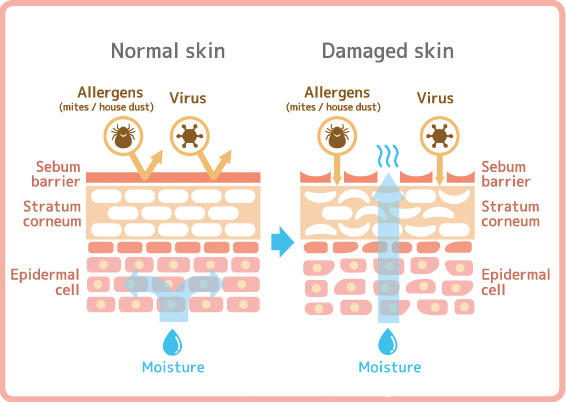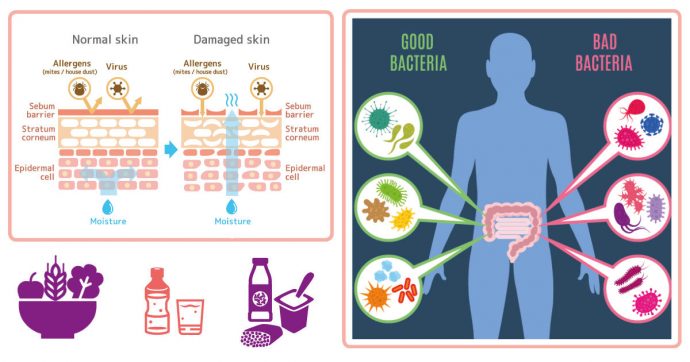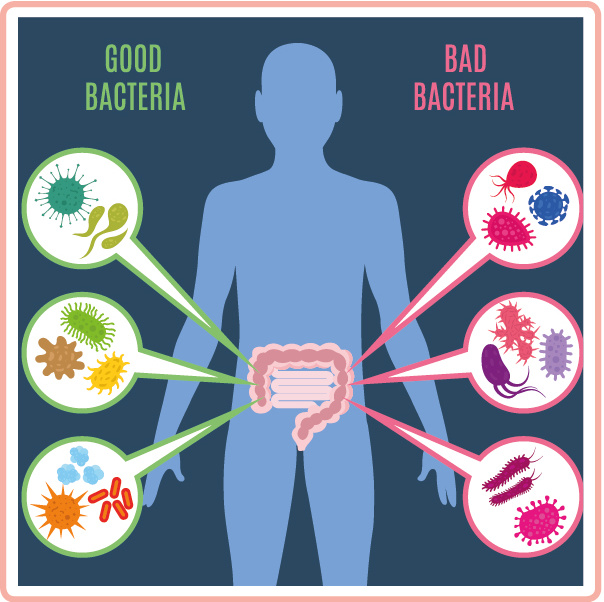What is the immune system?
Our immune system is made up of many different organs which contribute to our immunity:


The digestive system helps defend against pathogens entering via the gastrointestinal tract. The digestive & immune systems work together to signal immune cells. The gut is also the largest immune organ in human body. The gut microbiota, which are the microbes living in the gut, enhances immunity by forming a protective barrier and signalling (communicating) with immune cells. Good bacteria (gut microbiota) also helps your body digest food and supports your child’s immune system. Keys to good digestive health:
![]()
Consume balanced, nutrient-dense diet rich in fruits, vegetables and whole grains
Eat a variety of food as they provide important vitamins, minerals, and dietary fibre. Some vegetables also contain prebiotics (i.e. indigestible fibres that good bacteria feed on). This will contribute to optimal digestive health, which in turn helps improve the digestive process.
![]()
Exercise & hydrate
Helps improve diversity of gut microbiota. Try simple exercises, e.g. brisk walking around the house compound or indoor exercises such as stationary bike workouts, yoga, tai chi, and light stretching exercises.
![]()
Drink plenty of water to stay well-hydrated. Exercise and staying hydrated help ensure proper food digestion, bowel movement and also helps maintain a healthy balance of good vs bad bacteria.
![]()
Manage stress & get enough sleep
Stress and lack of sleep can negatively affect both digestive health and mental wellbeing. To prevent this, manage stress effectively and get sufficient sleep daily.
![]()
Include probiotic-rich foods in our diet
This includes food such as cultured milk drinks, yoghurt that contains probiotic live cultures, and fermented food (e.g. kimchi, sauerkraut, tempeh). Studies have found that probiotics promote good digestive health and can both directly and indirectly enhance our immune system.
![]()
Take oral nutritional supplements with live probiotic cultures
Supplementing your probiotic intake is usually not a worry. It is good to consult your doctor first to learn if supplementation is necessary and to see the most suitable probiotic supplement for you or your family.
How probiotics help:
- Inhibits pathogenic (bad) bacteria by competing for nutrients.
- Forms a protective barrier preventing harmful pathogens from entering our body.
- Modulates our body’s immune responses (e.g. stimulates production of antibodies, signals immune cells) in response to infection.
Tips for consuming probiotics:
- The probiotic strain in a product or supplement must be clinically proven and supported by studies and data that show the safety and efficacy of the product. E.g. Bifidobacterium lactis BB-12 and Lactobacillus paracasei L.CASEI 431.
- Choose products with minimal or no added sugar.
- Store probiotic products properly to optimise their effectiveness. This helps to maximise the viability of live strains before consumption. Some products require no refrigeration while others need to be refrigerated.
- Consult your doctor for further information.







Comments